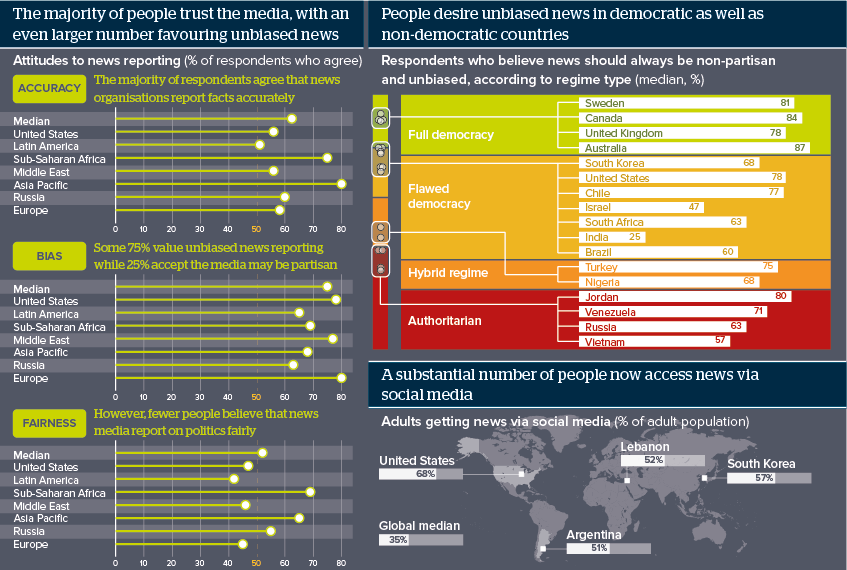Global public is polarised but not ‘post-truth’
Anxiety that people across the world now care less about truth and facts is overblown
Source: Pew Research Center Surveys (2017 and 2018) and EIU Democracy Index 2017
Outlook
Public trust in traditional news media is holding strong worldwide, with an even larger majority favouring accurate, impartial and non-partisan reporting. However, fewer people see political reporting as neutral, the majority in Latin America, Europe, the Middle East and the United States expecting the media to report unfairly. These findings together suggest that while truth and traditional media are still valued in the global public sphere, political polarisation is colouring people’s views on political news and vice-versa.
Such polarisation is likely to intensify with the rise in the number of people accessing news via social media, where those with more extreme views dominate activity, falsehoods (particularly on politics) spread faster than truths, barriers to entry are low and regulatory oversight of content is at best weak. Efforts to curb fake news and online manipulation will never fully succeed because of the inherent tension between upholding free speech and regulating online posts.
Impacts
- The election of divisive politicians will fuel political risk: such leaders are hard on rhetoric but soft on policy direction.
- Social media’s misuse for geostrategic rivalries will increase with the rise in internet access across developing countries.
- The decline in public trust in political news coverage is unlikely to be reversed, especially as corporate control over media increases.
See also
- Myanmar exposes social media risks in South-east Asia - Nov 12, 2018
- Prospects for internet governance in 2019 - Nov 9, 2018
- Social media-driven polarisation will intensify - Oct 16, 2018
- More graphic analysis
